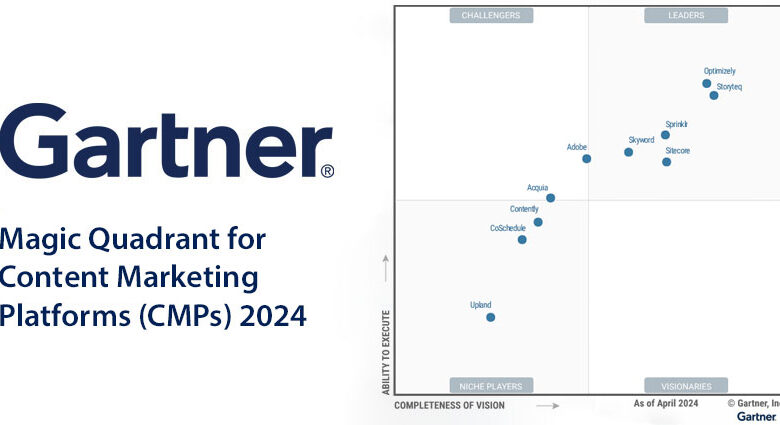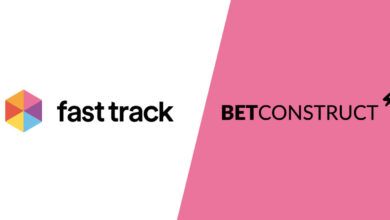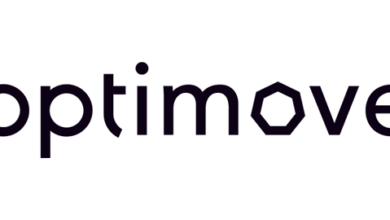Gartner Magic Quadrant for Content Marketing Platforms 2024

In 2024, businesses must stay on top of several shifts in the content marketing space.
For instance, conversational search built into search engines like Google and Bing is reducing the visibility of traditional SEO content.
Meanwhile, traditional eBooks and white papers face new competition from more interactive content, such as quizzes and video podcasts.
Of course, AI is also making its impact felt, auto-generating copy, taking snippets within videos, and helping build new forms of engagement – like quizzes – faster.
Such trends may make selecting a content marketing platform more challenging.
To help, Gartner has evaluated the offerings of ten prominent providers, isolating five market leaders, as presented below.
The Definition of Content Marketing Platforms
Content Marketing Platforms (CMPs) are software solutions that allow brands to create and curate marketing content.
Brands may build texts, videos, images, graphics, and audio content for various pieces of editorial. These could include interactive reports, video podcasts, social assets, and more.
According to Gartner, each asset tells a story to engage with prospects, nurture customers, and attract new audiences. Doing so allows the business to drive greater awareness, demand, and loyalty.
In addition, a CMP offers features to improve ideation, content planning, and editorial workflows – alongside analytics to improve “marketing effectiveness”.
There are also capabilities to “drive iterative content improvements”. These include functionalities that test operating models, connect content creation efforts, and encourage collaboration.
While the report dives much deeper, these are the headline capabilities of a CMP, which Gartner explored across each of the ten participating providers.
In doing so, the analyst assessed each vendor’s ability to execute and completeness of vision, splitting them into four groups: Leaders, Challengers, Visionaries, and Niche Players.
Here is how each of the ten Content Marketing Platform providers performed.
Gartner Magic Quadrant Leaders
Leaders in the Magic Quadrant provide features across “nearly all” product requirements and high customizability to support specific process requirements. In addition, they boast at least one differentiator that makes their platform “completely distinct” and a track record of successful deployments. Finally, they support forward-thinking businesses with progressive roadmaps. This year’s leaders are:
- Optimizely
- Storyteq
- Sprinklr
- Sitecore
- Skyword
Optimizely
Optimizely earns plaudits from Gartner for its market responsiveness, adapting and building out its product roadmap to account for the growing desire for AI in content marketing. That includes “in-context” AI embedded across the content marketing cycle. The analyst also commends Optimizely for its ability to support distributed teams, deliver an omnichannel content experience, and for its “overall viability”. As for the latter, Gartner cites its double-digit growth last year, 500+ customer accounts, and 100+ employees focused on CMP.
Storyteq
According to Gartner, Storyteq’s investments in AI features are “advanced” for the space, aiming to accelerate the content lifecycle and bolster performance. Yet, it also promotes the ethical use of AI and has unique tools to clarify the origin of generated content. That AI story is a core strength for Storyteq, alongside its market understanding and “overall viability”. To exemplify the latter and its focus on the complete content life cycle, Gartner highlights its many paid media partnerships across earned, shared, and owned channels.
Sprinklr
Via unique social listening capabilities and other forms of analytics, Sprinklr delivers significant insight to support content planning and ideation. These features particularly suit businesses with a high focus on social. Yet, alongside social media, Spinklr has expanded into new channels with an AI-first mindset, delivering innovations such as automated brief drafting and content review. Moreover, its entire platform regularly receives updates from verified customers. Lastly, as with Optimizely and Storyteq, Gartner highlights “overall viability” as a key strength for Sprinklr.
Sitecore
Sitecore has jumped on the virtual assistant trends with an AI Copilot that helps users build a content strategy via prompts and other inputs. That accelerates time to market and exemplifies the innovation Gartner underlines as a core strength. Meanwhile, the analyst highlights Sitecore’s global operations and product strategy as other big plusses. Diving deeper into the latter, Gartner highlights how Sitecore’s AI-assisted Content Hub helps marketing teams unify content pipelines and automate cross-team workflows to enable collaboration and brand consistency.
Skyword
Skyword exhibits a deep market understanding across its platform. For instance, its Skyword360 marketplace allows users to search for, interact with, hire, and pay for content writers worldwide. Meanwhile, it also leverages AI to share creator suggestions based on content specifications. Gartner notes this market comprehension as a core strength, alongside its customer experience and product strategy. The latter is evident in its roadmap, which includes various GenAI use cases, including a feature that derives AI-driven, persona-specific content from human-generated materials.
Gartner Magic Quadrant Challengers
Challengers in the Magic Quadrant entered the CMP market with “sophisticated” features and advanced innovation that set them up to meet increasingly complex needs. These may relate to lifecycle management, modular content, and so forth. As per Gartner, these “suite-based” offerings also come with database insight on content performance to drive asset optimization. This year’s challengers are:
Adobe
With almost $20BN in annual revenue, 29,000 employees, and a global footprint, Adobe is another vendor that offers high viability. It can also demonstrate high market understanding in its roadmap and fast innovation. Indeed, Adobe is relatively new to this space but has a proven track record for enhancing its offers with new and revised solutions, use cases, and updates. Gartner recognizes all this as significant positives. However, it urges caution on Adobe’s sales execution and pricing, with significant swings in costs across its portfolio, partially due to its many connected products.
Acquia
With a suite that includes a well-utilized customer data platform, contact marketing solution, and digital experience platform, Acquia earns plaudits for its overall viability. Also, Gartner commends the vendor for its operations and innovation. Regarding the latter, the analyst highlights Acquia’s advanced data management, personalization, and scalable modular content capabilities. However, Gartner cautions as to the vendor’s market responsiveness, relying on integrations and IT lift to meet several prospective client use cases.
Gartner Magic Quadrant Visionaries
Gartner didn’t place any Content Marketing Platform providers in the Visionary quadrant.
Gartner Magic Quadrant Niche Players
Niche Players in the Magic Quadrant offer all the foundational CMP criteria and often satisfy client expectations. However, overall reviews are typically more varied. Moreover, their investment in platform innovation lags behind leaders. Nevertheless, they can offer unique features that can be their clincher for many clients, such as high ease of deployment or sales enablement expertise. This year’s niche players are:
- Contently
- CoSchedule
- Upland
Contently
Contently works closely with its clients to leverage GenAI content creation, giving them the extra support they crave. That highlights its strong market understanding, which Gartner isolates as a core strength alongside its customer experience and productivity focus. In terms of cautions, the analyst mentions customer reviews that question the platform’s cost-efficiency. Yet, Contently didn’t respond to requests for “supplemental information”, which may have also harmed its performance.
CoSchedule
Gartner commends CoSchedule’s ability to serve customer requirements without long deployments or the requirement of additional paid services, alongside the provider’s release cadence and vertical strategy. As per the latter, CoSchedule helps solve unique industry challenges and demonstrates a keen understanding of highly regulated sectors. However, Gartner warns of its business model, with the provider still targeting SMBs while CMPs are converging with other enterprise systems, like DXPs.
Upland
Upland has developed a sophisticated marketing strategy that considers the content needs of departments beyond the usual CMP scope, such as customer success. In doing so, it’s shifting toward a more “comprehensive content operations suite”, as Gartner terms it. The analyst recognizes this foresight as a core strength, alongside its sales execution and CX focus. However, Gartner warns that Upland is still catching up with competitors, having entered the market late. For instance, the provider has yet to add AI capabilities to the Kapost platform.
Unpack other related Magic Quadrant rundowns by checking out the following articles:



